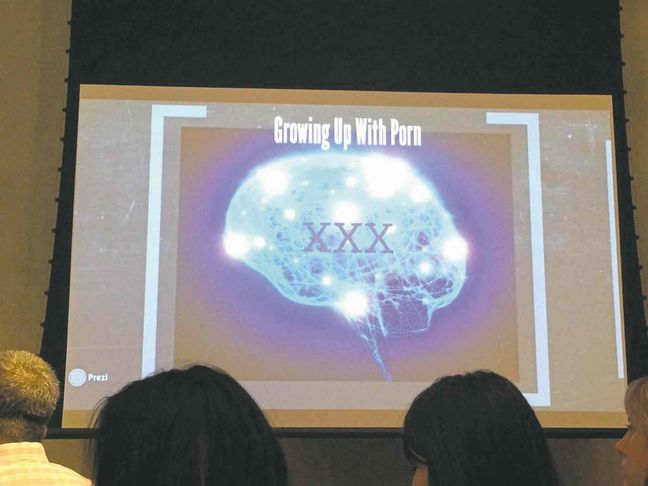THERE’S no cleaning up the language when you’re talking porn with Gabriel Deem, a man who says from the age of 11 he regularly consumed obscene megabytes-worth of pornography.
It was a compulsion that eventually robbed him of any interest in real, tactile sex with another human being. His story serves as a warning for parents grappling with the new normal brought about by the ubiquity of the Internet. It’s not an easy story to hear, but it’s an important one regardless.
What started out as normal, school-boy voyeurism and exploration grew into a habit that Deem, now 27, has no trouble describing as an addiction, every bit as wicked as substance abuse.
He was a high schooler that no parent, had they read his mind, would have wanted near their daughter.
“I got into very abusive porn. I eventually started to subconsciously desire that in my intimate relationships. Real oral-sex related things — like deep throat, throat-banging — or anal sex, I didn’t originally desire.”
Deem stresses he was never abusive, but the imprint was there, weighing on his mind and distorting his view of girls and intimacy.
The stuff that fuelled the dysfunction is readily available to any kid with access to the Internet, says Deem, a Texan in town today for the Beyond Borders symposium The Pornification of Our Children.
What is this porn on offer? “Facial abuse — slap her. They make her cry while shoving the penis down her as far as they can.”
I could have tagged a disclaimer to this column — turn the page if Junior’s chowing down his Corn Flakes nearby — but Deem says if your kid can navigate the Internet, he’s already seen this stuff.
So we’ll dispense with socially acceptable euphemisms.
And that’s his message: Watch what your kids are pulling up on their electronic devices. Talk to them, frankly, about what’s in their face.
We used to call it hard-core. The better descriptor for it is toxic. It is violent, hyper-demeaning and objectified and it is ubiquitous, available at a few key strokes. Porn was once thumbed, page by page, and found under a mattress or at the town dump. Today, there’s no limit to an unfiltered consumption as kids daily spend four, five hours of screen time, unsupervised in the bedroom.
There is evidence that addiction to porn triggers chemical hits in the brain similar to drugs, mimicking the effects on receptors and neurotransmitters. Viewers get desensitized and turn up the dial, so to speak. Deem says his abuse, and that of many others joining Internet help groups, led to erectile dysfunction.
Debasing porn warps a kid’s desire. It changes how boys look at girls, Deem warns, how they talk about them in the halls at school.
“We didn’t talk about which girls kissed good when we were 14 years old, but (about) which would give the best oral sex or would allow anal sex.”
And girls are laying out their goods in a high-stakes competition in which sexting is tactical in a fight with amoral, virtual rivals.
So says Jennifer Lawrence: “either your boyfriend is going to look at porn or he’s going to look at you.” Her nude photos were criminally hacked in the harsh light of day.
Eventually, Deem could not get aroused at the sight or intimate touch of a woman’s body. He was on a diet of increasingly explicit, violent porn. Eventually, he went cold turkey to recover, a long and difficult transition.
There is a belief, with some foundation, that predators online use porn as bait. But Deem’s story tells us that there’s a qualitative shift in the social norms and relationships that feed into sexual development, influencing the health and security of our boys and girls, how they define their sense of their bodies, themselves, their place in the world It makes one yearn for the days when the town perverts and their funky haunts were easily identifiable to pubescent girls. Few of us escaped undefiled by the chicken hawks who smelled opportunity in innocence. We had the audacity of growing up female amid pervasive predation, and we looked sceptically at the naivety that we could protect our children by teaching to yell “stranger danger.”
The Internet lays at their fingertips of our boys and girls a big, beautiful and wonderful world. But the journey is fraught with pernicious experiences.
Parents have to be wise to the perils.
Keep talking to your kids, love unreservedly. Knock on the bedroom door every now and again.
Lay down the values, and make sure the bond is strong so that when your son or daughter asks themselves — as we all did, and they all will — why “this doesn’t feel right”, they hear your voice, too, amid the odious influences bearing down on them.
